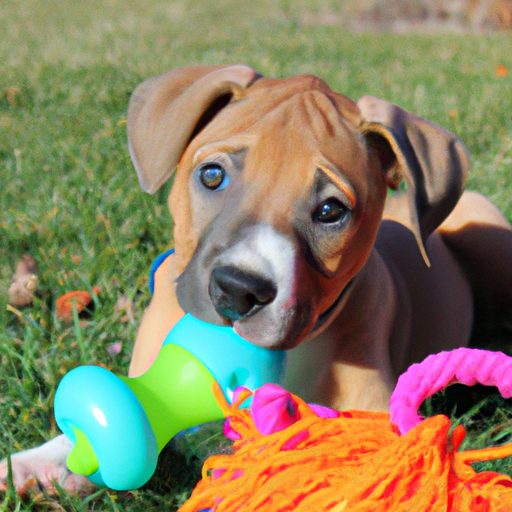As a caregiver, your journey with your puppy is rewarding yet challenging, and every stage is filled with new experiences and learning. Let’s delve into understanding your five-month-old puppy better.
Understanding Your 5 Month Old Puppy
The five-month mark is a significant milestone in your puppy’s life. At this age, they are no longer a ‘little’ puppy and are entering their ‘teenage’ phase.
- Your puppy’s size will depend on its breed. Larger breeds like German Shepherds may weigh up to 50 pounds, while smaller breeds like French Bulldogs may weigh around 10 pounds.
- They will start teething, and you might notice them chewing on things more.
- They will be more energetic and curious. They will want to explore their surroundings and may try to assert their independence.
Feeding Your 5 Month Old Puppy
Feeding your puppy appropriately is crucial for their growth and health. Here’s a guideline:
- Large Breeds: Feed about 8% of their body weight divided into three meals.
- Medium Breeds: Feed about 7% of their body weight divided into three meals.
- Small Breeds: Feed about 6% of their body weight divided into three meals.
| Breed Size | Percentage of Body Weight to Feed |
|---|---|
| Large | 8% |
| Medium | 7% |
| Small | 6% |
Always consult with your vet to adjust feeding based on your puppy’s activity level and health condition.
Training Your 5 Month Old Puppy
Training at this age is critical as your puppy is more receptive and eager to learn.
- Socialization: Continue to expose your puppy to a variety of environments, people, and other animals.
- Obedience Training: Teach basic commands like ‘Sit’, ‘Stay’, ‘Come’, and ‘Leave it’.
- Leash Training: Teach them to walk nicely on a leash without pulling or lunging.
Health Care for Your 5 Month Old Puppy
At this age, your puppy should be up-to-date with their vaccinations. Regular vet visits are important to monitor their growth and development.
- Keep up with monthly heartworm, flea, and tick preventatives.
- Dental care is critical, as your puppy will be teething.
- Monitor for any changes in behavior or physical appearance.
Behavioral Changes in Your 5 Month Old Puppy
Your puppy may start to display some challenging behaviors due to their ‘teenage’ phase. Here’s how to handle them:
- Biting: Provide plenty of chew toys to soothe their teething.
- Jumping Up: Ignore this behavior and reward them when they have all four paws on the ground.
- Resource Guarding: Teach them ‘drop it’ and ‘leave it’ commands.
FAQ’s
Q: How much sleep does my 5-month-old puppy need?
A: Puppies this age still need a lot of sleep — between 15 and 20 hours a day.
Q: Is it normal for my puppy to lose teeth?
A: Yes, similar to human children, puppies lose their baby teeth to make way for adult teeth.
Q: My puppy is very energetic. How can I calm them down?
A: Regular exercise, mental stimulation, and training can help manage their energy levels.
Q: How often should I bathe my puppy?
A: It’s usually enough to bathe your puppy once a month. But if they get dirty or have a doggy smell, you can bathe them more frequently.
Remember, raising a puppy is a journey filled with joy, challenges, and learning. You’re doing a great job, and your adorable puppy will soon grow into a well-behaved, loyal companion.



